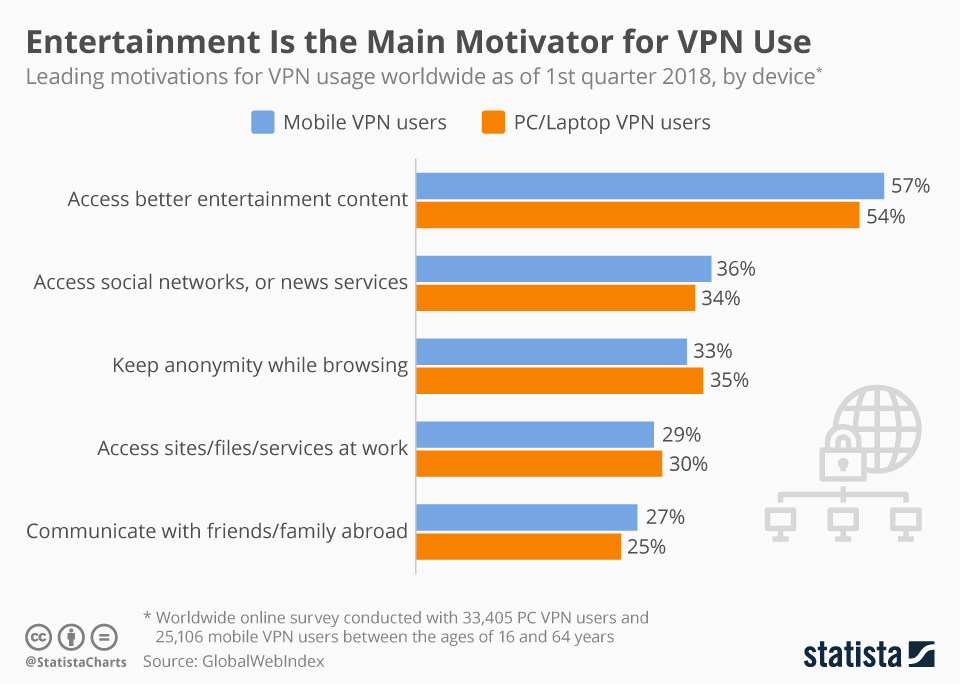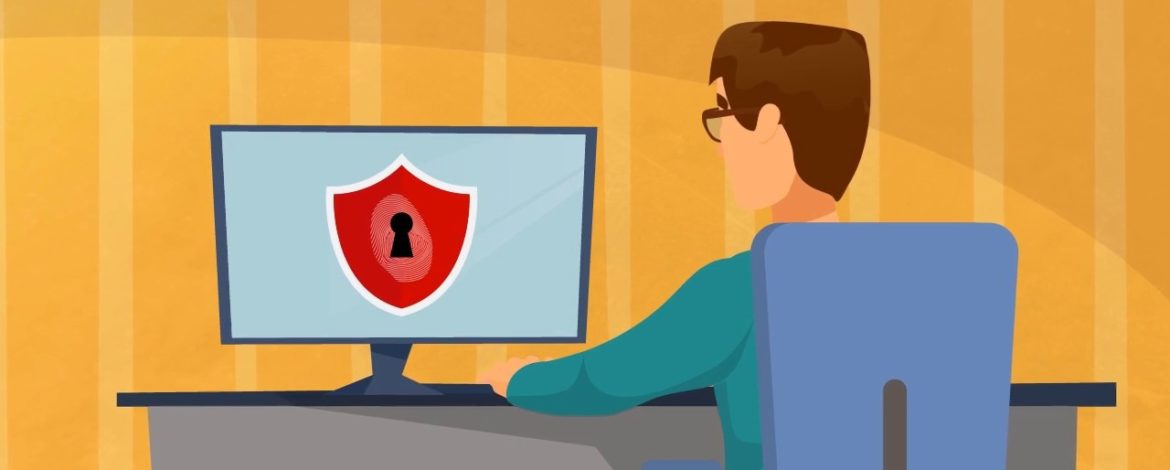How often do you browse the Internet every day? I would assume quite often. In fact, almost every adult in the United States goes online every single day. According to a report done by pewresearch.org, “overall, 85% of Americans say they go online on a daily basis. That figure includes the 31% who report going online almost constantly, as well as 48% who say they go online several times a day and 6% who go online about once a day. Some 8% go online several times a week or less often, while 7% of adults say they do not use the internet at all.” But do you know how many companies are tracking you, and collecting your data while you browse? Even some of the most well-known companies in the WORLD do it, and they have been called out for it, and have even been SUED for it. For example, Google faced a $5 BILLION dollar lawsuit back in 2020 over tracking data even when people were in Incognito mode, a way where you can browse “privately”and was sued AGAIN back in 2021 over a privacy breach lawsuit. The thing is, these large companies want to sell your data. That’s how they make money of course. They will sell it to 3rd party advertisers who will try selling you stuff via ads. They will also try tracking you to sell your data as well, and sensitive information such as names, email addresses, phone numbers, and even IP addresses could be sold to others without your consent to market off of you and to target ads towards you. So, what can we do about it? This is where the technology of Virtual Private Networks steps into play.
Virtual Private Networks, also known as VPNs, is a service that both encrypts your data and hides your IP address by bouncing your network activity through a secure chain to another server miles away. This obscures your online identity, even on public Wi-Fi networks, so you can browse the internet safely, securely and anonymously. VPN history starts back in 1996, when a Microsoft employee (most sources say Gurdeep Singh-Pall) started developing the Peer to Peer Tunneling Protocol (PPTP). In 1999, the specification was published. VPN technology had its start in government projects and corporations. Initially, they were just meant to offer government officials and corporate employees a secure way to remotely access files from home, downtown, or while on a trip abroad. Over time, VPNs and the concept behind this technology have changed drastically, and over the years, VPNs went from that to large, successful commercial services. More and more people got access to the Internet – 300+ million after 2000, and nearly 900 million by 2005. Suddenly, it wasn’t just engineers, programmers, project managers, and C-level staff that were using the Internet regularly for work and to communicate with other people. So, demand started to grow for commercial VPN services among regular online users too. With this being said, what are the benefits and risks of using a VPN?
There are dozens of benefits of using a VPN. One example is that it can hide your private information. According to Norton, a certified VPN company, they state that websites and apps can constantly track your online activity, analyzing the data they collect. A VPN can prevent web browsers and others from accessing your connection, helping to keep information you send and receive anonymous and secure. Some VPNs also offer military-grade 256-bit encryption of your data. This can be helpful if you are logging into many personal accounts, like banks, emails, or other services, so with a VPN, you do not have to be paranoid if someone is reading your usernames and passwords because you will be protected and are able to browse the internet with privacy. If you are not worried about privacy, but more are looking to see it as a little add-on to your day-to-day life, it can be helpful for that as well. Some VPNs may be able to access geo-blocked content such as Netflix and other providers. How? A VPN can change your IP address to make a content provider think you’re browsing in another location or region that allows access. Note: Always check the Terms of Service agreements to find out what’s permitted by your streaming service and follow those guidelines. Also, be mindful that some countries may have penalties for using VPN to circumvent its rules. VPNs can be incredibly convenient for anyone who is very secure about privacy, and really does not want their data being shared with other people, but also can be convenient for the average user who just wants it to browse region-specific content. Of course, there are always pros and cons about VPNs. With that being said, what are the disadvantages regarding the VPNs that are out there?
There can be many disadvantages for VPNs. One is that it can result in a slightly slower internet. Since the VPN is encrypting and rerouting your internet connection, it can lead to slower internet speeds, and even occasional internet drops as well. It also poses a risk of being illegal in some countries as well. For example, in North Korea, one of the tightest regulated countries in the world, the ban of VPN use in North Korea shouldn’t be much of a surprise to anyone. The country has one of the most authoritarian governments in existence and has laws forbidding much of anything to its people except the right to work and venerate their leader, and in 2017 they outlawed VPNs entirely. It can also be very difficult to set up, and setting up a VPN on a computer or router can take a lot of time. This is mostly used for people who have extensive technology knowledge, and know what they are doing. However, this isn’t all that practical for the average consumer. This is why there are many different options of VPNs to choose from, which may become overwhelming. For example, you have VPNs such as Surfshark, NordVPN, and ExpressVPN, who all claim to protect you from anything harmful on the internet, but the pricing from each of the 3 can vary. For example, you may run into different types of errors among these 3 VPNs, and their servers can be slow at times. For example, a VPN called Hide My Ass, which allegedly has data sharing to authorities, which can be problematic for a company that boldly claims that they want to be the best VPN in the world. You also have McAfee SafeConnect VPN which has weak privacy, and security as well as a controversial owner. Lastly, there are numerous cases of NordVPN having “cracked accounts” for sale, which essentially means that users are selling usernames and passwords for NordVPN accounts to consumers. It has gotten so bad to the point where NordVPN made an article about cracked software, and the cracked accounts that have been circulating the internet. It is hard to find one solid VPN, and you will find dozens of ads everywhere, including YouTube, Facebook, Twitter, etc. which will advertise a different VPN, and their pros to it. This can be overwhelming for the average consumer, and will require quite a bit of research. You may also come across sponsored ads from content creators, claiming that the VPN they are advertising is the best. However, you should never go in blindsided, and always do research behind the VPN before you buy.
Technology is forever changing as we know it today, and will VPNs be the future? Well, sort of. Companies are actively trying to get your data when you visit a website, and they have so much information on you from just one click. This is known as location-based advertising, and big companies like Google and Facebook are built off of this technique. The reason they are successful is because they want to market products that you may like towards you, and advertisers will pay Google to advertise on their platform, and Google being the middleman will serve those ads to you, and work on targeting ads towards consumers. They will often receive large sums of money from these advertisers, which is why they are worth more than a billion dollars. This is where VPNs are trying to combat this, and even Google has made their own VPN, as well as their Incognito mode feature, which claims to not track your data. However, Google has been sued for over 5 billion dollars with sources claiming that they are tracking users even whilst you are in Incognito mode. It may be a possibility that Google’s own VPN may get sued because of Google’s history with privacy concerns in the past. Even the parent company of CyberGhost VPN has been notorious to have privacy concerns in the past, so the trustworthiness of these VPN providers are very sporadic. Also, the rise of cybercrime may have an impact due to these VPNs. For example, DoubleVPN was a VPN provider being used by gangs and to collect ransomware from users. However, it has been taken down by police, but this is only the first instance of something like this. Many hackers may be using publicly available VPNs to collect information from their users, but the plus side may outweigh the negatives. VPNs have given power back to the users, and have given them more control over their privacy. Before, companies would be able to steal data, and you would agree to it in a “Privacy Policy” situation. This has also made a turn for the worse as Facebook stole data in 2016, and used it to fund pro-Trump campaigns via a harmless survey users took, and would essentially influence political agendas towards users. You also have movie companies suing VPN companies to block users from pirating movies. But now, users have more privacy than ever. Privacy is a basic human right, and should be treated like one among big tech companies. Though this may be hurting the income of some of these big tech companies, it is giving the users the right to privacy, and control what they see on the internet.
Overall, VPNs can be used for good and bad things, depending on how you would look at it. It can give the users privacy, and feel reassured when they are browsing the internet, but it could also be used for the worse as cybercrimes can be committed, and the trustworthiness of the VPN companies themselves are up for question. But, should you be worried? Well, not yet. There is no large risk of using a VPN, but some services block VPNs, so the most “troubling” use you will get from a VPN is a “Disconnect from VPN” error, but you will not go to jail or anything like that, unless you are using it for cybercrimes. You should think of it as a positive, and that you are browsing privately on the internet without someone watching you. Privacy is a basic human right, and every person should be able to browse in private, but sadly companies make it harder to do that, so having a VPN is always handy. Please share this article with friends, family, and employers, since a single share may help millions of people stressed from this, and can inform many people as well. Please share this to anyone concerned with this topic as well, and relieve stress caused by virtual private networks overall.

Source: Statista.com, Chart: Entertainment Is the Main Motivator for VPN Use.



Leave A Comment